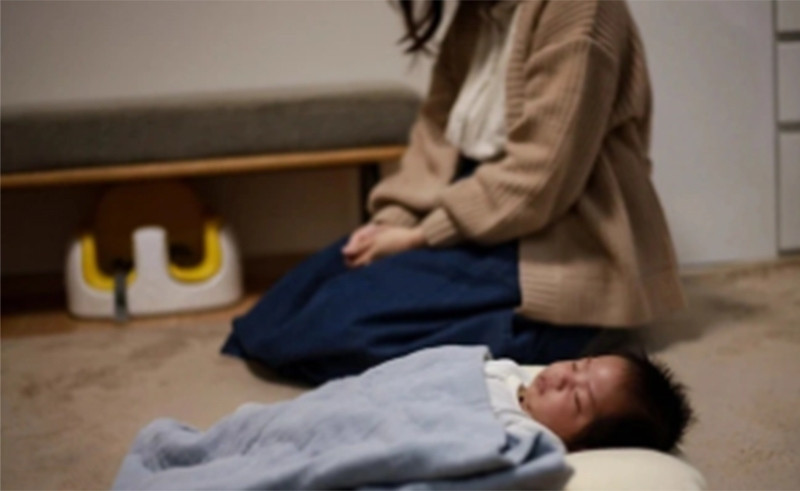13-year-old son insults the delivery staff and does not even apologize, the mother handles it well: The family is confused, but netizens praise it
Parents are the ones who bring their children into the world. What you do that your child sees is just as important as what you say and what he hears.
Family education can be said to be the first enlightenment of a child. Parents’ attitudes also greatly influence a child’s outlook on life. When children have wrong words and deeds, the compromise or correction of parents at that time is very easy to lead children to different future paths.
Previously, a mother in the US was troubled by this, and in the end had no choice but to ask for the help of netizens. The 39-year-old mother posted on reddit that she and her husband had a serious disagreement about how to raise children.
The reason for the story is this: A week ago she ordered some Chinese food home. When the delivery boy arrived at the door, her 16-year-old daughter was leading the cat upstairs to feed it. However, at this moment, the 13-year-old son suddenly shouted: “Sister, hide the cat!” (implying that the Chinese will eat cat meat).

Hearing these extremely racist words, the Chinese delivery boy who was delivering the food was momentarily stunned. The mother herself who was preparing to receive the food was also very sad and embarrassed. After several apologies, she hurried back to the house.
Considering that such a joke was clearly super rude and extremely wrong, the mother took her son very seriously and demanded that he apologize. However, the stubborn son not only refused to admit he was wrong.
That very night, she directly made her son write a sincere apology letter to the delivery man. Also write another introduction to Chinese culture and an article on why racism is perpetuated by racist jokes and stereotypes. The next day, she took her son to a Chinese restaurant, asked him to read the apology letter aloud, and hand over the entire handwritten note to the delivery guy.
Such a sincere apology makes the delivery guy feel respected. He expressed his gratitude to his mother.
At first, after his son apologized, she thought it was over. However, the mother then still had trouble with her husband. The husband thought it was a shame to let his son apologize in public, his crime was not great. In contrast, the mother said that it was more embarrassing for the delivery person to face such racism and racist prejudices than for her son to apologize.

“This family doesn’t allow any hateful thoughts, and my son’s words shame him,” the mother said. Too upset at her husband’s reprimand and criticism, the mother really couldn’t think of what she had done wrong.
As for the mother’s handling, most netizens expressed their support. Some argue that this is not a punishment but actually a rewarding learning experience.
– Your husband’s attitude is the problem. Thank you so much for giving your son a fair and caring lesson, I hope he really learns from that. Maybe your husband needs to do some similar homework on what racism is. Honestly, I’m so proud you’re such a great role model to our family.
– I’m Chinese and I’ve heard a lot of racist “jokes” about me in my life. It’s really embarrassing and painful. If someone, like your son, wrote me an apology letter later, I would probably cry. I am grateful that you as a parent have taught your children not to behave like that. I hope your husband will eventually understand and accompany you in raising your children.
How to talk to kids about racism
According to Unicef, conversations about racism and discrimination will vary from family to family. While there’s no one-size-fits-all approach, it’s scientifically proven that parents should start talking to their kids about the issue as soon as possible.
Children under 5 years old
At this age, children can recognize and point out the differences between the people they see around them. As a parent, you have the opportunity to slowly build the foundation for your child’s worldview. Use language that is understandable and age-appropriate when talking to your child.
Recognize and celebrate the difference – If your child asks about someone’s skin color, you can use it as an opportunity to acknowledge that people really do look different, but to point out the things we all have in common. You might say, “We’re all human, but we’re all different. Isn’t that cool?”.
Open Make it clear that you’re open to your child’s questions and encourage your child to look to you. If your child points out people who look different – because they’re young and act out of curiosity – don’t silence her as she might think it’s a taboo topic.
Fair Children, especially those around the age of 5, tend to understand the concept of equity. Let’s discuss racism as an unfair and unacceptable phenomenon, and why we need to work together to make it better. It’s okay not to have an answer to every question.
Children from 6-11 years old
Children this age are better able to talk about their feelings and can’t wait to get answers. Children are also exposed to more information that they find difficult to understand. Start by finding out what your child knows.
Curious Listening and asking questions is the first step. For example, you could ask about what your child hears at school, on television, or on social media.
Let’s discuss media together – Social media and the Internet can be a child’s primary source of information. Be interested in what your child is reading and what he or she is having online. Look for opportunities to explore examples of racial stereotypes and biases in the media, such as “Why are some people portrayed as villains while others are not?” are not?”.
Chat openly – Talking honestly and openly about racism, diversity and inclusion builds trust with children. That will prompt your child to come to you to open up and ask questions. If your child sees you as a trusted source of advice, he or she is more likely to engage in conversation with you about the topic.

Illustration.
Children 12 years and older
Adolescents can understand abstract concepts more clearly and express their opinions. Your child may know more than you think and have strong feelings about the subject. Try to understand how your child feels and what he or she knows, and keep the conversation going on the topic.
Find out what children know – Learn about what your child knows about racism and discrimination. What have you heard on the news, at school, from friends?
Ask a question – Find an opportunity, like using news events to talk to your kids about racism. Ask them what they think and introduce them to different points of view to help broaden their understanding.
Encourage action Being active on social media is important for teenagers. Some kids may have already started thinking about getting involved socially online. Encourage children to participate as an active way to respond to and participate in racial issues.
Following Vietnamese Lifestyle
at Blogtuan.info – Source: infonet.vietnamnet.vn – Read the original article here



